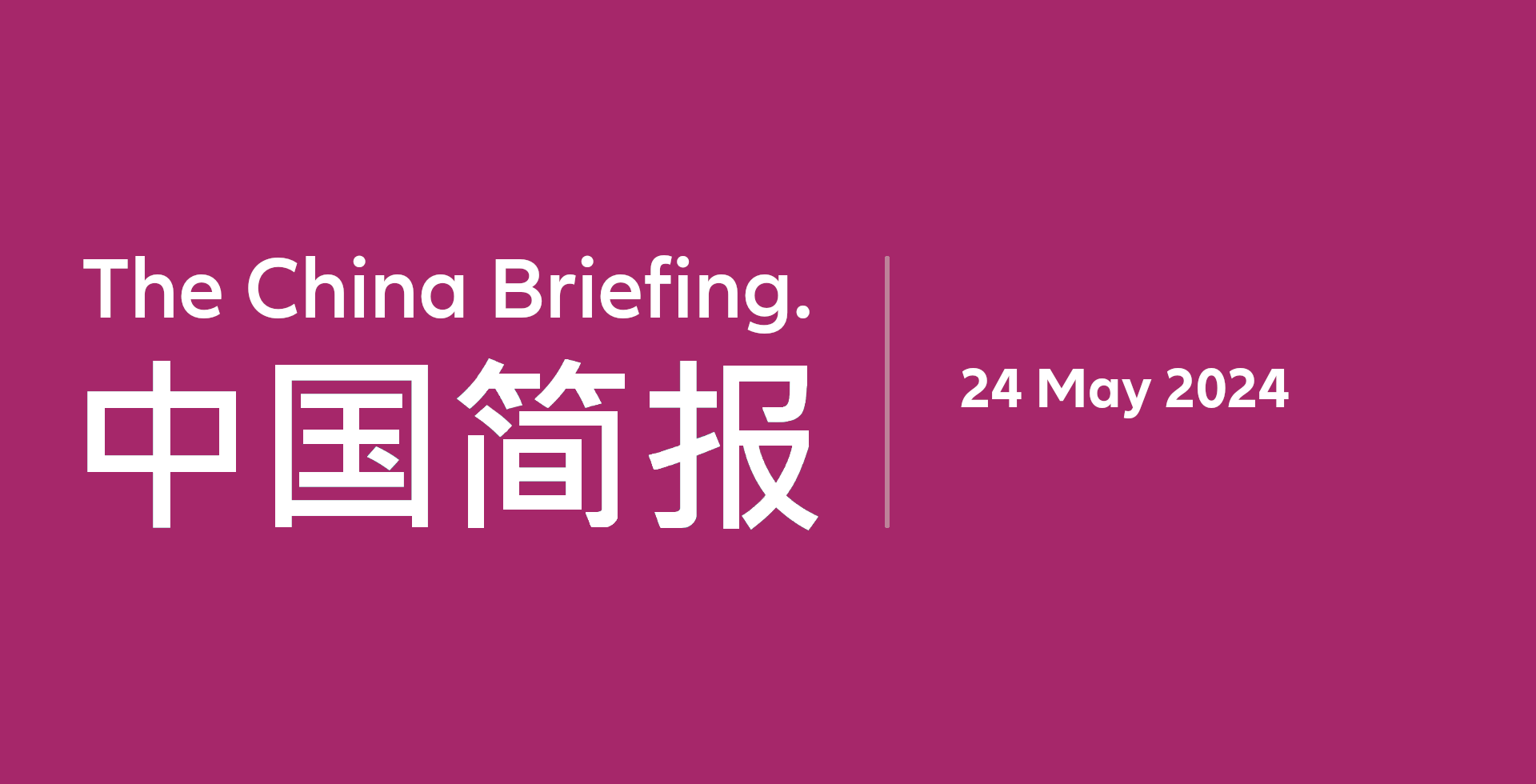The China Briefing
Beginning of the end of the property crisis?

Within the more positive market environment H shares have been notable outperformers – a combination of catch up, improving fundamentals and fund flows.
Please find below our latest thoughts on China:
- The light at the end of the China equities tunnel continues to get brighter. Since Chinese New Year, China Ashares are up 17%. Offshore equities have been even more buoyant – the Hang Seng China Enterprises Index (HSCEI) – commonly seen as a proxy for H-shares – is up more than 30% (USD).1
- To some extent, the outperformance of offshore equities reflects a degree of catch-up after lagging previously. However, several other fundamental and technical factors are also at play.
- Q1 results saw notable resilience in the internet space as well as banks – both big constituents in offshore indices. Internet companies announced some significant share buybacks. And banks in Hong Kong have benefited from higher rates as well as improved sentiment regarding the China macro environment.
Chart 1: Hang Seng Stock Connect AH Premium Index (5 years)

Source: Bloomberg as at 21 May 2024
- Southbound Stock Connect flows into Hong Kong from mainland Chinese investors have picked up notably year to date.2 This is partly due to the more depressed valuations of HK-listed stocks – the AH premium index, which measures the premium/discount of dual-listed A-shares over H-shares, reached multi-year highs in January.
- Another catalyst was a report that mainland China retail investors would be exempted from paying the 20% dividend tax on Hong Kong stocks bought through Stock Connect. No details have been confirmed but the report prompted a significant rally in higher-yielding offshore stocks.
- A further technical point is related to the huge retail appetite for structured products in South Korea. At the beginning of this year, active Korean auto-callable products linked to indices such as the S&P 500, Euro Stoxx 50 and HSCEI amounted to around USD 20 billion.3
- Around USD 2 billion notional of these auto-callables tied to the HSCEI are due to expire in the coming two months.4 The sharp index rally has likely forced significant covering by dealers as they approach expiry.
- With the recovery in offshore markets, valuations relative to onshore equities are back at more normalised levels. The AH premium index has fallen from a peak of 58% in January to currently around 34% (the five-year average is 39%).5
- While we don’t have a strong view on the relative allocation of onshore vs offshore at this stage, nonetheless for China equities overall we continue to be encouraged by recent news flow and policy initiatives.
- The most important development, in our view, has been the way Chinese policymakers have significantly stepped up their efforts to help stabilise the property sector, with measures to address both the lack of demand and excess supply.
Chart 2: Share price of one of China’s largest property agents (since Jan 2023)

Source: Bloomberg as at 21 May 2024
- Down-payment ratios have been reduced to 15% for first-time buyers and 25% for second home buyers. The nationwide floor to mortgage rates will be removed. And for cities with higher levels of housing inventory, local governments can now purchase part of the unsold homes and convert them into public housing.6
- In combination, we view these measures as representing the biggest nationwide property easing since the property turmoil started close to three years ago.
- And while the RMB 300 billion (approx. USD 42 billion) quota provided by the China central bank for local governments to purchase existing housing inventory makes a somewhat modest dent in the overall oversupply situation, nonetheless the government has sent a strong message about its intentions to put a floor under the property market.
- The pivot in policy direction, and the likelihood of further measures to follow, has provided the catalyst for a sharp rally in property-related stocks.
- It’s also interesting to observe the performance of fixed income markets. The iBoxx USD Asia ex Japan China Real Estate High Yield Index bottomed in November 2023 and has moved steadily higher since then.7
- While the property sector will remain a drag on the macro environment in China for some time, it is likely we are seeing the beginning of the end of the housing crisis, for capital markets at least.
1 Source: Bloomberg, 21 May 2024
2 Source: Wind, 30 April 2024
3 Source: structuredproducts.net, 28 February 2024
4 Source: Goldman Sachs, 17 May 2024
5 Source: Bloomberg, 21 May 2024
6 Source: Goldman Sachs, 18 May 2024
7 Source: Bloomberg, 21 May 2024

